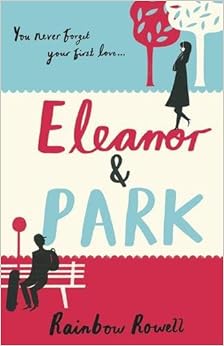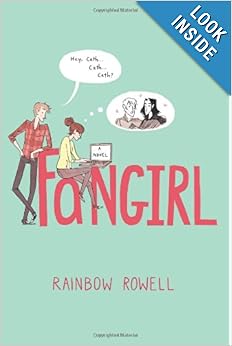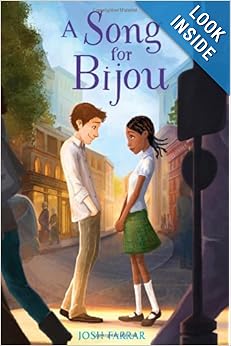 I have read very few authors with as much insight into the feelings and thought processes of men, women, and children as Elizabeth Goudge. The Rosemary Tree is remarkable in its treatment of characters who are all somewhat broken (as are we all), but who fall on a continuum from repentant to ineffectual to struggling to wise to completely evil. And the character who is represented as utterly irredeemable, because she doesn’t want to be forgiven or changed, might be the character you least suspect.
I have read very few authors with as much insight into the feelings and thought processes of men, women, and children as Elizabeth Goudge. The Rosemary Tree is remarkable in its treatment of characters who are all somewhat broken (as are we all), but who fall on a continuum from repentant to ineffectual to struggling to wise to completely evil. And the character who is represented as utterly irredeemable, because she doesn’t want to be forgiven or changed, might be the character you least suspect.
It all seems very true to life. (By the way that’s an awful cover, but the others I saw at Amazon weren’t any better. I don’t know why the people are wearing what looks like Elizabethan or Edwardian costumes. The story takes place in the twentieth century, after World War II.) The main characters in this little vignette of village life are:
John Wentworth, a bumbling and diffident country parson who sees himself as a weak man and a failure who can never get anything quite right.
“He took off his coat, rolled up his shirt-sleeves, lifted up to Almighty God the magnitude of his failure and the triviality of his task, and applied himself to the latter. The hot water warmed his cold hands and the pile of cleansed china grew satisfactorily on the draining-board. There was a pleasure in getting things clean. Small beauties slid one by one into his consciousness, quietly and unobtrusively, like growing light. The sinuous curves of Orlando the marmalade cat, washing himself on the window-sill, the comfortable sound of ash settling in the stove, a thrush singing somewhere, the scent of Daphne’s geraniums, the gold of the crocuses that were growing round the trunk of the apple tree outside the kitchen window.”
Others see him as Don Quixote, the Man of la Mancha.
Daphne Wentworth, John’s wife, is much more competent than her husband, but also full of pride and thwarted ambitions from her youth.
The couple have three children: Pat, who is like her mother, competent and intelligent and sharp, Margary, who is more like John, dreamy and vulnerable, and Winkle, who is the baby of the family, but wise with the innocence of childhood.
Harriet lives upstairs in the Wentworth parsonage, and she is wise with the wisdom of many years of experience, first as John’s nanny, then as the parsonage housekeeper, and now as a retired pray-er and watcher over the entire household.
“They all said they could not do without her. In the paradoxical nature of things if she could have believed them she would have been a much happier woman, but not the same woman whom they could not do without.”
Maria Wentworth, John’s great-aunt, lives in Belmaray Manor and keeps pigs.
Young Mary O’Hara, Irish and full of vitality, and Miss Giles, middle-aged, bitter, and full of frustrations, both teach school at the small private school that the Wentworth girls attend. Mary’s aunt, Mrs. Belling, “was a very sweet woman and had been a very beautiful one.” She is headmistress of the little school, where all three girls are quite unhappy, each in her own way.
Into this mix comes a stranger, Michael Stone, who is weighed down by many, many real failures and sins and who comes to Devonshire where the story takes place not so much for redemption as simply for a place to go, perhaps to hide from the world. Michael will find more than he’s looking for, and the other characters in this novel will change and grow as a result of Michael’s presence and the truth he brings into their lives.
Elizabeth Goudge really has written a lovely novel. Apparently, The Times criticized its “slight plot” and “sentimentally ecstatic” approach when the book was first published in 1956. I’ll admit the story is a bit short on action, but the descriptions of how and what people think and feel more than makes up for any deficiency in fictional exploits.
Sidenote/detour: While looking for more information about Elizabeth Goudge, I found this article about an Indian author, Indrani Aikath-Gyaltsen, who plagiarized from The Rosemary Tree in her 1993 Cranes’ Morning. In fact, aside from changing the setting to India, the names of the characters to Indian ones, and the religion to Hinduism, Ms. Aikath-Gyaltsen copied much of Goudge’s novel word-for-word. It took about a year for the plagiarism to be noticed and confirmed, and in the meantime Indrani Aikath-Gyaltsen died, probably committing suicide. Sad story.
I wonder what Elizabeth Goudge, who died in 1984, would have thought about it all?
Not to end this review of and homage to Ms. Goudge’s agreeable novel on such a sad note, I’ll leave you with one more quote:
“The way God squandered Himself had always hurt her; and annoyed her, too. The sky full of wings and only the shepherds awake. That golden voice speaking and only a few fishermen there to hear; and perhaps some of the words He spoke carried away on the wind or lost in the sound of the waves lapping against the side of the boat. A thousand blossoms shimmering over the orchard, each a world of wonder all to itself, and then the whole thing blown away on a south-west gale as though the delicate little worlds were of no value at all. Well, of all the spendthrifts, she would think, and then pull herself up. It was not for her to criticize the ways of Almighty God; if He liked to go to all that trouble over the snowflakes, millions and millions of them, their intricate patterns too small to be seen by human eyes, and melting as soon as made, that was His affair and not hers.”
I like the idea of God as a spendthrift, creating beauty for the sheer joy of it all whether there’s anyone there to perceive it or not. Isn’t there a poem based on that idea? Maybe Emily Dickinson?
 Futuristic, post-apocalyptic science fiction that’s very loosely based on or inspired by Jane Austen’s novel of manners and thwarted love, Persuasion. Eliot North, the main character, is a girl who, like Ann Eliott in Persuasion has chosen duty over love and passion. As she is unavoidably throw together with the man she rejected over four years previously to the opening of our story, Elliot must decide how to guard her heart and remain true to her principles of loving and caring for the innocent and helpless.
Futuristic, post-apocalyptic science fiction that’s very loosely based on or inspired by Jane Austen’s novel of manners and thwarted love, Persuasion. Eliot North, the main character, is a girl who, like Ann Eliott in Persuasion has chosen duty over love and passion. As she is unavoidably throw together with the man she rejected over four years previously to the opening of our story, Elliot must decide how to guard her heart and remain true to her principles of loving and caring for the innocent and helpless.









